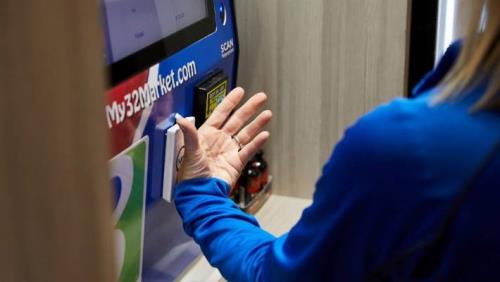Biometric data can be a useful tool for employers, but what about your privacy?
31 July 2017

Your fingerprint is uniquely your own, tied to your identity for your entire life. It is for this very reason that technology is advancing the usefulness of biometric data like fingerprints, making it much harder for people to keep their identity and history private.
These technological advances are everywhere - from DNA technology allowing police to solve cold cases to everyday people unlocking their phone with a scan of their face.
The use of biometric data is particularly noticeable in airports, with immigration in many countries demanding fingerprints, thumbprints and even scans of your iris.
No doubt people cooperate because they know that if they don't, they will be unlikely to cross the border. People also probably accept that these security measures are in the interests of aviation safety and national security, which keeps them safe too.
But when it comes to the workplace, people seem to have a different attitude.
Take the recent Australian Fair Work Commission decision involving Queensland sawmill worker Jeremy Lee and his employer, Superior Wood.
Lee refused to give his fingerprints to his employer as part of a new work sign-in system. After a period of some months involving discussions and then warnings, Lee was sacked for his persistent refusals.
Lee wasn't just thinking about privacy, he declared: "It's my biometric data. It's not appropriate for them to have it".
Lee raised a concern that has been expressed broadly about the use of biometric data - what if it gets shared and misused? You can't change a fingerprint like you can a phone number, and as Lee said.
"If someone else has control of my biometric data they can use it for their own purposes - purposes that benefit them - not me."
In the Fair Work Commission, Superior Wood argued that the new scanning system was implemented so they could address payroll issues and better track who was or wasn't on the premises.
The Fair Work Commission agreed with them but rested its decision on Lee not being given sufficient notification to allow for a process of informed consent.
Lee could be forgiven for being disappointed that the commission failed to grapple with the ownership of his biometric data and instead decided on the basis of procedure.
Should fingerprint scanning be accepted as reasonable workplace policy, and those who don't comply with it be liable for dismissal? Isn't it more reliable to have a fingerprint scanned than clocking in cards where another person can use your card and cards can be lost or stolen?
The New Zealand Employment Court some years ago in a case involving OCS Limited and the Service and Food Workers' Union looked at the same sort of issues. The case concerned employees being required to provide their fingerprints for a new timekeeping system.
The court looked at a number of issues, considering whether the technology was compatible with the contractual obligations of the parties, and whether the employer had balanced between the need for the technology and the level of personal intrusiveness involved for the individuals concerned.
The court held that the employer has the right to introduce different systems of time keeping technology, subject only to reasonable consideration of valid concerns raised by the union or the employees of the company.
However, like in the Australian case, faulty process was critical. The court held that while OCS's decision to implement the new scheme would have been an adequate basis for lawful and reasonable instruction to the workers, OCS still had to comply with its obligations to consult in a timely and appropriate way with its staff. It failed to do so and accordingly the instruction was unlawful.
Technology has moved even further than fingerprints. Microchips have also entered the employment scene.
American firm, Three Square Market, had 80 of the company's 250 employees elect to be implanted with microchips. Some workers claimed they were easy to use whether for accessing the building or ordering their favourite foods and drinks.
Interestingly, people appear to be more resistant to microchips than biometric scanning - probably because of the intrusiveness involved and the uncomfortable anticipation of the insertion of the chip in their body.
However, in comparison with fingerprints, a chip can be removed at any time, while biometric data is tied to you in the company records forever.
Many of you will have not given a second thought to providing your biometric data to immigration officials on your last overseas holiday. But would you let your employer obtain say, fingerprints, so you can use them to access your workplace?
Unquestionably the tide of progress will not easily be stopped and just as technology replaced keys with swipe cards to gain access to workplaces, the advance of technology is sure to see the swipe cards look like the stagecoach of yesteryear as more advance technology inevitably takes over as tomorrow's Rolls Royce.


